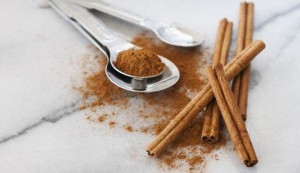 The benefits of natural herbs in our daily diet is a topic of increased study. While I originally dismissed many healing herbs as being blown beyond their practical value, I’ve been intrigued by the results of many people; noting that it cannot be entirely a result of the placebo effect. I began to look more closely at how I’ve used herbs in my life and their results without event thinking about it. I do think some of the alleged claims still need to be substantiated scientifically, and not simply rely on the he said she said type of evidence; but it’ll come.
The benefits of natural herbs in our daily diet is a topic of increased study. While I originally dismissed many healing herbs as being blown beyond their practical value, I’ve been intrigued by the results of many people; noting that it cannot be entirely a result of the placebo effect. I began to look more closely at how I’ve used herbs in my life and their results without event thinking about it. I do think some of the alleged claims still need to be substantiated scientifically, and not simply rely on the he said she said type of evidence; but it’ll come.
Most of what is listed below has been taken verbatim from several articles; and you can find the links back to the original source after the article. And while no single herb is the cure all end all, just as healthy eating has no guarantee of not being hit by the ailments of life; a life style that includes more natural and organic plants is a life style that can help set us up for success. So consider adding these to you garden.
Jon
In general use, herbs are any plants used for food, flavoring, medicine, or perfume. In medicinal or spiritual use any of the parts of the plant might be considered “herbs”, including leaves, roots, flowers, seeds, resin, root bark, inner bark (and cambium), berries and sometimes the pericarp or other portions of the plant.
Plants have been the basis for medical treatments through much of human history, and such traditional medicine is still widely practiced today. Modern medicine recognizes herbalism as a form of alternative medicine, as the practice of herbalism is not strictly based on evidence gathered using the scientific method. Modern medicine, does, however, make use of many plant-derived compounds as the basis for evidence-tested pharmaceutical drugs, and phytotherapy works to apply modern standards of effectiveness testing to herbs and medicines that are derived from natural sources.
Your arsenal of home remedies is about to get a lot spicier with these best healing herbs. Though herbs have been used for hundreds of years to heal, scientists are finally starting to substantiate these plants’ abilities to alleviate arthritis pain, reduce high blood sugar and cholesterol, and help with many other conditions. They’re even discovering amazing new powers in the best healing herbs, such as the ability to kill cancer cells and help problem drinkers curb their alcohol intake.
“Herbs and other natural remedies can be as effective as traditional treatments, often without the same negative side effects,” says Roberta Lee, MD, medical director of the Continuum Center for Health and Healing at Beth Israel Medical Center in New York City.
Here are 10 superhealers you’ll want to add to the all-natural section of your medicine cabinet—and even to your favorite recipes. Folding one or two of them into your cooking every day can yield big benefits.
3 Rules For The Safest Self-Healing
Natural substances often work like drugs in the body, say Joe and Terry Graedon. They suggest following these precautions.
Rule: Don’t assume it’s safe. Herbs are not regulated by the FDA for safety or efficacy. So search the label for a seal of approval from the USP (United States Pharmacopeia) or CL (Consumer-Lab.com), which indicates it has been approved by certified academic laboratories. For a fee, you can research particular products at ConsumerLab.com.
Rule: Talk with your doctor. It’s best to tell him if you’re considering supplements. Some herbs can interact with certain meds, including those for high blood pressure, diabetes, and depression, as well as blood thinners and even OTC drugs.
Rule: Don’t overdo it. More isn’t necessarily better—and could be dangerous. Always follow dosing instructions.
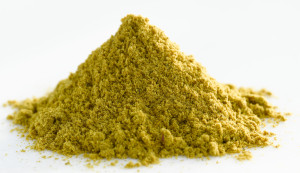
Turmeric: Ease arthritis
A heaping helping of curry could relieve your pain. That’s because turmeric, a spice used in curry, contains curcumin, a powerful anti-inflammatory that works similarly to Cox-2 inhibitors, drugs that reduce the Cox-2 enzyme that causes the pain and swelling of arthritis, says Lee.
It might also: Prevent colon cancer and Alzheimer’s disease. According to a small clinical trial conducted by the Johns Hopkins University School of Medicine, curcumin can help shrink precancerous lesions known as colon polyps, when taken with a small amount of quercetin, a powerful antioxidant found in onions, apples, and cabbage. The average number of polyps dropped more than 60% and those that remained shrank by more than 50%. In a 2006 study published in the Journal of Alzheimer’s Disease, researchers at UCLA also found that curcumin helps clear the brain of the plaques that are characteristic of the disease.
Maximize the benefits: For general health, Lee recommends adding the spice to your cooking whenever possible. For a therapeutic dose, James A. Duke, PhD, author of The Green Pharmacy, suggests 400 mg of curcumin extract three times daily, right in line with what subjects in the colon polyp study took (480 mg of curcumin and 20 mg of quercetin, three times a day).
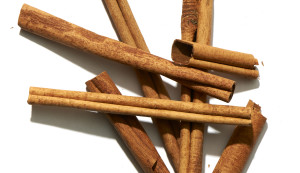
Cinnamon: Lower blood sugar
In a recent German study of type 2 diabetics, taking cinnamon extract daily successfully reduced blood sugar by about 10%.
It might also: Lower cholesterol. Cinnamon packs a one-two punch for people with type 2 diabetes by reducing related heart risks. In another study of diabetics, it slashed cholesterol by 13% and triglycerides by 23%.
Maximize the benefits: To tame blood sugar, study subjects took 1 g capsules of standardized cinnamon extract daily, while those in the cholesterol study took 1 to 6 g. But keep in mind that a large amount of the actual spice can be dangerous, so stick with a water-soluble extract. Terry Graedon, PhD, coauthor with her husband, Joe, of Best Choices from the People’s Pharmacy, recommends the brand Cinnulin PF.
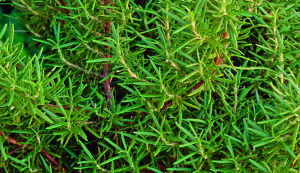
Rosemary: Avoid carcinogens
Frying, broiling, or grilling meats at high temperatures creates HCAs (heterocyclic amines), potent carcinogens implicated in several cancers. But HCA levels are significantly reduced when rosemary extract (a common powder) is mixed into beef before cooking, say Kansas State University researchers. “Rosemary contains carnosol and rosemarinic acid, two powerful antioxidants that destroy the HCAs,” explains lead researcher J. Scott Smith, PhD.
It might also: Stop tumors. Rosemary extract helps prevent carcinogens that enter the body from binding with DNA, the first step in tumor formation, according to several animal studies. When researchers at the University of Illinois at Urbana-Champaign fed rosemary extract to rats exposed to dimethylbenzanthracene, a carcinogen that causes breast cancer, both DNA damage and tumors decreased. “Human research needs to be done,” says study author Keith W. Singletary, PhD. “But rosemary has shown a lot of cancer-protective potential.”
Maximize the benefits: To reduce HCAs, Smith recommends marinating foods in any supermarket spice mix that contains rosemary as well as one or more of the spices thyme, oregano, basil, garlic, onion, or parsley.
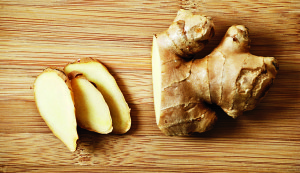
Ginger: Avert nausea
Ginger can prevent stomach upset from many sources, including pregnancy, motion sickness, and chemotherapy. “This is one of Mom’s remedies that really works,” says Suzanna M. Zick, ND, MPH, a research investigator at the University of Michigan. A powerful antioxidant, ginger works by blocking the effects of serotonin, a chemical produced by both the brain and stomach when you’re nauseated, and by stopping the production of free radicals, another cause of upset in your stomach. In one study of cruise ship passengers traveling on rough seas, 500 mg of ginger every 4 hours was as effective as Dramamine, the commonly used OTC motion-sickness medication. In another study, where subjects took 940 mg, it was even more effective than the drug.
It might also: Decrease your blood pressure, arthritis pain, and cancer risk. Ginger helps regulate blood flow, which may lower blood pressure, says Zick, and its anti-inflammatory properties might help ease arthritis. Ginger extract had a significant effect on reducing pain in all 124 patients with osteoarthritis of the knee, in a study conducted at the Miami Veterans Affairs Medical Center and the University of Miami. Those same anti-inflammatory powers help powdered ginger kill ovarian cancer cells as well as—or better than—traditional chemotherapy, at least in the test tube, found a study by the University of Michigan Comprehensive Cancer Center. Although further testing is needed, Zick and the study’s authors are excited about its prospects: “Our preliminary results indicate that ginger may have significant therapeutic benefit for ovarian cancer patients.”
Maximize the benefits: For nausea, ginger is best taken before symptoms start, at least 30 minutes before departure, say the Graedons. They recommend capsules containing 500 to 1,000 mg of dried ginger every four hours, up to a maximum of 4g daily.
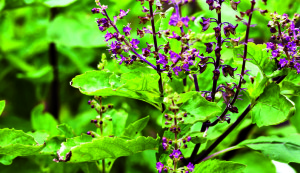
Holy Basil: Combat stress
Several animal studies back holy basil, a special variety of the plant you use in your pesto sauce, as effective at reducing stress by increasing adrenaline and noradrenaline and decreasing serotonin. This is no surprise to Pratima Nangia-Makker, PhD, a researcher at the Barbara Ann Karmanos Cancer Institute in Detroit, whose mother and grandmother relied on a tea made from the leaves of holy basil to relieve indigestion and headaches.
It might also: Inhibit breast cancer. First in test tubes and then in mice, a tea made of holy basil shrunk tumors, reduced their blood supply, and stopped their spread, found Nangia-Makker, who plans to study the effects in humans.
Maximize the benefits: For stress relief, try holy basil extract from New Chapter or Om Organics, widely available in health food stores. To aid in breast cancer treatment, Nangia-Makker advises drinking this tea daily: Pour 2 cups boiling water over 10 to 15 fresh holy basil leaves (other varieties of basil won’t work) and steep 5 minutes. Remove the leaves before consuming. If you are being treated for breast cancer, be sure to check with your doctor. You’re unlikely to find the plants at your local nursery, but you can order them and organic holy basil seeds from Horizon Herbs.
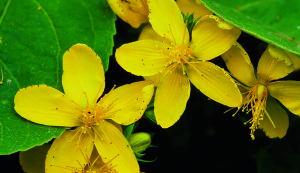
St. John’s Wort: Soothe your worries
You probably know that research has confirmed this herb’s power to relieve mild to moderate depression and anxiety as effectively as many drugs—without a lot of the side effects.
It might also: Help you snooze more soundly. St. John’s wort not only contains melatonin, the hormone that regulates our sleep-wake cycles, but it also increases the body’s own melatonin, improving sleep, says a report from the Surgeon General. (These 20 ways to sleep better every night can also help.)
Maximize the benefits: For both mood and sleep problems, author Duke recommends a supplement containing at least 0.3% hypericin (the active phytochemical) per capsule or 300 mg of the extract to be taken three times daily. Warning: St. John’s wort has been shown to interact with several prescription medications, so be sure to check with your doctor before taking it.
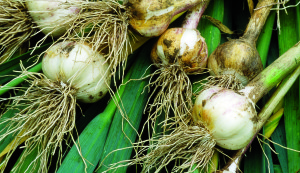
Garlic: Lower cancer risk
High consumption of garlic lowered rates of ovarian, colorectal, and other cancers, says a research review in the American Journal of Clinical Nutrition. A Japanese clinical trial also found that after a year of taking aged garlic extract supplements, people with a history of colon polyps saw a reduction in the size and number of the precancerous growths detected by their doctors.
It might also: Provide cardiovascular benefits. Garlic contains more than 70 active phytochemicals, including allicin, which many studies have shown decreases high blood pressure by as much as 30 points. Garlic may help prevent strokes as well by slowing arterial blockages, according to a yearlong clinical study at UCLA. In addition, patients’ levels of homocysteine, a chemical that leads to plaque buildup, dropped by 12%.
Maximize the benefits: Crushed fresh garlic offers the best cardiovascular and cancer-fighting benefits, says Duke. But you’ll need to down up to five cloves each day. Try Kyolic aged garlic extract capsules (1,000 mg), the product used in many of the studies.
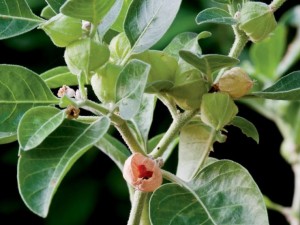
Ashwagandha, (Withania somnifera)
Uses: Rejuvenating tonic, anti-inflammatory, reduces anxiety, boosts immune health
Preparation and doses:
Tea: Simmer 1 tsp dried and sliced root in 1 cup water or milk for 10 minutes. Strain. Drink 1 or 2 times per day.
Standardized Extract (2–5% withanolides): Take 500 mg 2 or 3 times per day.
Concerns: Can cause milk sedation; potential to stimulate thyroid hormones.
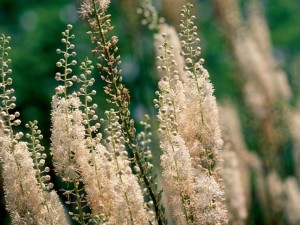
Black Cohosh, (Actaea racemosa)
Uses: Relieves menstrual cramps and arthritic pain; commonly used to ease menopausal symptoms
Preparation and doses:
Tincture: Take 1–2 ml 3 times per day.
Standardized extract: Take 20–80 mg 2 times per day.
Concerns: Very rare case reports of liver damage (likely due to misidentified herb); purchase only from reputable supplier.

Calendula, (Calendula officinalis)
Uses: Calendula has long been used to relieve inflammation of the mouth, throat, and stomach; popular as a topical cream or ointment to relieve rashes and irritation and to help heal wounds.
Preparation and doses:
Tea: Pour 1 cup boiling water over 2 tsp petals. Steep for 10 minutes. Strain. Use as needed as a mouthwash, gargle, or tea.
Ointment: Apply to skin 2 or 3 times per day as needed.
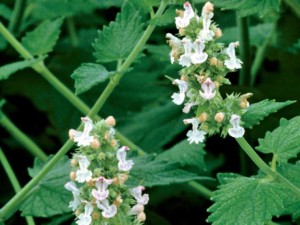
Catnip, (Nepeta cataria)
Uses: Soothes an upset stomach; reduced anxiety and tension
Preparation and doses:
Tea: Pour 1 cup boiling water over 4 or 5 fresh or 1 tsp dried leaves. Steep for 5 minutes. Strain and sweeten, if desired. Drink 1 or 2 times per day.
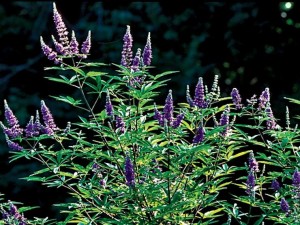
Chasteberry, (Vitex agnus-castus)
Uses: Premiere herb for relieving PMS symptoms
Preparation and doses:
Capsules: Take 250–500 mg dried fruit once per day.
Tincture: Take 2–3 ml each morning.
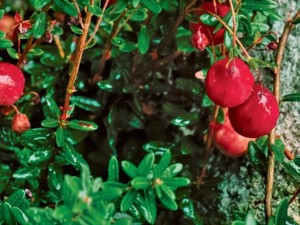
Cranberry, (Vaccinium macrocarpon)
Uses: Well-established treatment for reducing the risk of bladder infection; could also be beneficial for chronic prostatitis
Preparation and doses:
Juice: Drink ½-¾ cup twice per day.
Capsules: Take 300–500 mg concentrated juice extract 2 times per day.
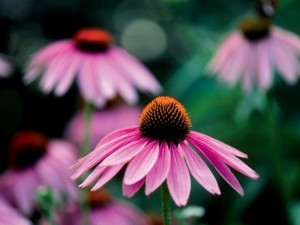
Echinacea, (Echinacea spp.)
Uses: Antiviral and immune-enhancing properties; popular for relieving colds and upper respiratory infections (approved in Europe for these uses)
Preparation and doses:
Tea: Simmer 1 tsp dried and sliced root in 1 cup water for 10 minutes. Strain. Drink 1-3 cups per day.
Tincture: Take 5 ml 3-6 times per day at onset of cold symptoms.
Concerns: Rare allergic reactions.
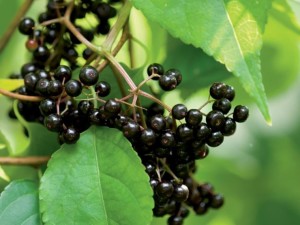
Elderberry, (Sambucus nigra, S. canadensis)
Uses: Elderberry flowers have been valued as a remedy for colds and fever for centuries; fruit extracts have been shown to have significant antiviral activity, especially against the flu.
Preparation and doses:
Tea: Pour 1 cup boiling water over 1–2 tsp flowers. Steep for 10 minutes. Sweeten if desired and drink hot 2-3 times per day.
Berry extracts: Use as directed.
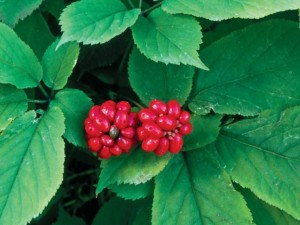
Ginseng, (Panax quinquefolius; P. ginseng)
Uses: Helps relieve and prevent mental and physical fatigue; shown to reduce the frequency and severity of colds; possibly beneficial for erectile dysfunction
Preparation and doses:
Tea: Simmer 1 tsp dried and sliced root in 1 cup water for 10 minutes. Strain. Drink 1–2 cups per day.
Standardized extract (4–7% ginsenosides): 100–400 mg per day
Concerns: Purchase from a reputable manufacturer, as ginseng has often been adulterated in the past.
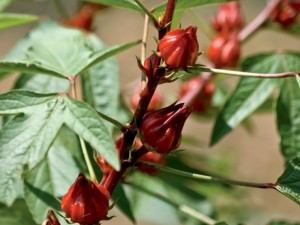
Hibiscus, (Hibiscus sabdariffa)
Uses: Lowers blood pressure and has mild diuretic activity; traditionally used to ease sore throats and colds
Preparation and doses:
Tea: Pour 1 cup boiling water over 1–2 tsp dried flowers. Steep for 10 minutes. Strain and sweeten, if desired. Drink 2 cups per day.
Capsules: Take 1,000 mg 2 times per day.
Concerns: Talk to your health-care provider if you have high blood pressure.
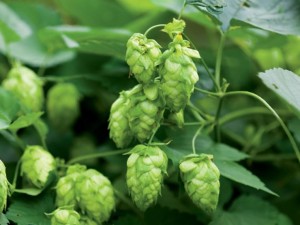
Hops, (Humulus lupulus)
Uses: Excellent sleeping aid; smaller, daytime doses used to ease tension, restlessness, and anxiety; might help reduce hot flashes during menopause
Preparation and doses:
Capsules: Take 200–300 mg 1-3 times per day.
Tincture: Take 2–4 ml before bed.
Concerns: Can cause sedation
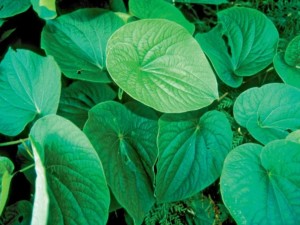
Kava, (Piper methysticum)
Uses: Clinical trials have shown kava to be highly effective for relieving anxiety. Also has significant muscle-relaxing effects.
Preparation and doses:
Tea: Simmer 1 tsp dried and sliced root in 1 cup water for 10 minutes. Strain. Drink 1–2 cups per day.
Extract of root: Take 100–200 mg 2 or 3 times per day. (Do not exceed 210 mg per day of kavalactones.)
Concerns: Rare cases of liver toxicity; do not use if you have liver disease, frequently drink alcohol, or are taking acetaminophen or prescription medications.
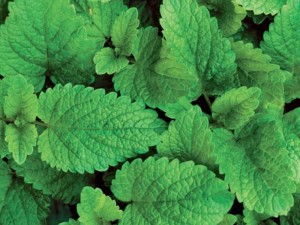
Lemon Balm, (Melissa officinalis)
Uses: Gentle calmative; eases tension, digestive upset, and colic; topical creams used for fever blisters
Preparation and doses:
Tea: Pour 1 cup boiling water over 5 or 6 fresh or 1 tsp dried leaves. Steep for 5 minutes. Strain and sweeten, if desired. Drink several times per day.
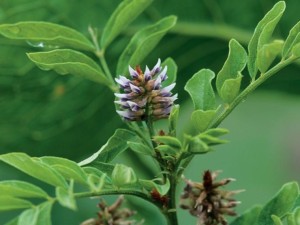
Licorice, (Glycyrrhiza glabra)
Uses: Excellent anti-inflammatory; soothes mucous membranes; useful for sore throats and coughs; protects and heals gastrointestinal tract
Preparation and doses:
Tea: Simmer 1 tsp dried and sliced root in 1 cup water for 10 minutes. Strain. Drink 2 or 3 times per day for up to 7 days.
Capsules: Take up to 3,000 mg per day for 7 days. Do not exceed 500 mg per day if taking for longer than 7 days.
Concerns: Do not use high doses for longer than 1 week as it elevates blood pressure and causes potassium loss. (DGL, a special preparation commonly used for heartburn, is safe for prolonged use.)
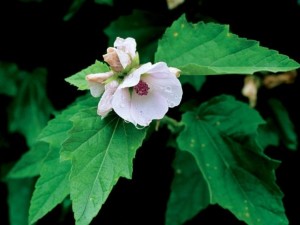
Marshmallow, (Althaea officinalis)
Uses: Root and leaf are rich in mucilage, a substance that coats the lining of the mouth and throat, as well as the tissue that lines the gastrointestinal tract. Used for sore throat, heartburn, and minor GI inflammation.
Preparation and doses:
Tea: Pour 1 cup hot water over 1 tsp dried and sliced root or 2 tsp leaf. Steep for 2 hours. Strain and drink as desired.
Concerns: Take other drugs 1 hour prior to or several hours after consuming marshmallow, as it could slow absorption of oral medications.
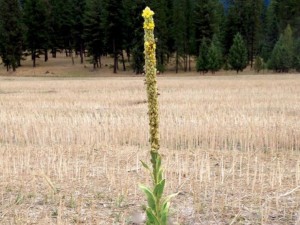
Mullein, (Verbascum thapsus)
Uses: Leaves commonly used to relieve cough, sore throat, and chest congestion; steeped in oil, the flowers relieve earache.
Preparation and doses:
Tea: Pour 1 cup boiling water over 1–2 tsp leaves. Steep for 10 minutes. Strain, sweeten, and drink as desired.
Ear oil: Use as directed.
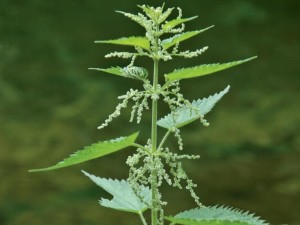
Nettle, (Urtica dioica)
Uses: Fresh, freeze-dried leaves relieved seasonal allergy symptoms in one human trial. Research supports use of the root for easing symptoms of enlarged prostate. Tea widely recommended for its nutritive value.
Preparation and doses:
Tea: Pour 1 cup boiling water over 2 tsp leaves. Steep for 10 minutes. Strain. Sweeten if desired. Drink 1–3 cups per day.
Freeze-dried nettle capsules: Take 300–500 mg 2 times per day.
Nettle root: Take 250–400 mg 2 or 3 times per day.
Concerns: Wear gloves when handling fresh nettles to avoid stinging and irritation (sting is lost with cooking or drying); very safe herb.
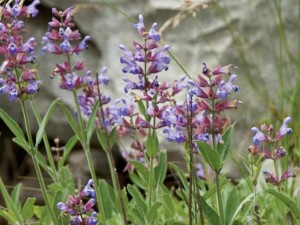
Sage, (Salvia officinalis)
Uses: Excellent for sore throat, cough, and colds; recognized in Germany as a treatment for excessive sweating; studies show it can help reduce menopausal hot flashes and night sweats.
Preparation and doses:
Tea: Pour 1 cup boiling water over 1 tsp leaves. Steep for 10 minutes. Strain. Drink, or use as a sore throat gargle.
Capsules: Take 500 mg dried leaf 2 times per day.
Concerns: Do not use therapeutic doses during pregnancy; do not use sage essential oil internally.
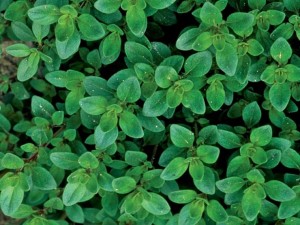
Thyme, (Thymus vulgaris)
Uses: Highly regarded for relieving coughs, colds, and congestion; rich in volatile oils that have significant antimicrobial and antispasmodic activity
Preparation and doses:
Tea: Pour 1 cup boiling water over 1 Tbsp fresh or 1 tsp dried leaves. Steep for 10 minutes. Strain and sweeten, if desired. Drink ⅓ cup 3 times per day.
Andrographis: Shorten Summer Colds Andrographis does a great job of relieving upper-respiratory infections, such as colds or sinusitis, says new research. A study in the journal Phytomedicine reported that the herb eased symptoms such as fatigue, sleeplessness, sore throat, and runny nose up to 90%.
Maximize the benefits: Lee and the Graedons recommend Kan Jang (available at ProActive BioProducts), an herbal extract produced by the Swedish Herbal Institute and used in several of the trials.
Sea Buckthorn: Reverse vaginal dryness Sea buckthorn (Hippophae rhamnoides) is very effective for hydrating mucous membranes and alleviating vaginal dryness. It contains palmitoleic acid, a fatty acid found in human skin that helps moisturize and heal it.
Maximize the benefits: Lee suggests up to four capsules a day of Supercritical Omega 7, a sea buckthorn supplement by New Chapter. It’s available at health food stores.
Kudzu: Curb problem drinking A group of moderately heavy drinkers in their 20s voluntarily cut their beer consumption in half after taking capsules containing the Chinese herb (also called Pueraria lobata) for a week, according to a study published in Alcoholism: Clinical and Experimental Research. Researchers say the kudzu more quickly allows alcohol to get to the part of the brain that tells you that you’ve had enough.
Maximize the benefits: Participants took capsules with 500 mg of kudzu extract three times daily.
http://www.prevention.com/mind-body/natural-remedies/best-healing-herbs-top-10
http://www.prevention.com/mind-body/natural-remedies/25-healing-herbs-you-can-use-every-day/

Leave a Reply